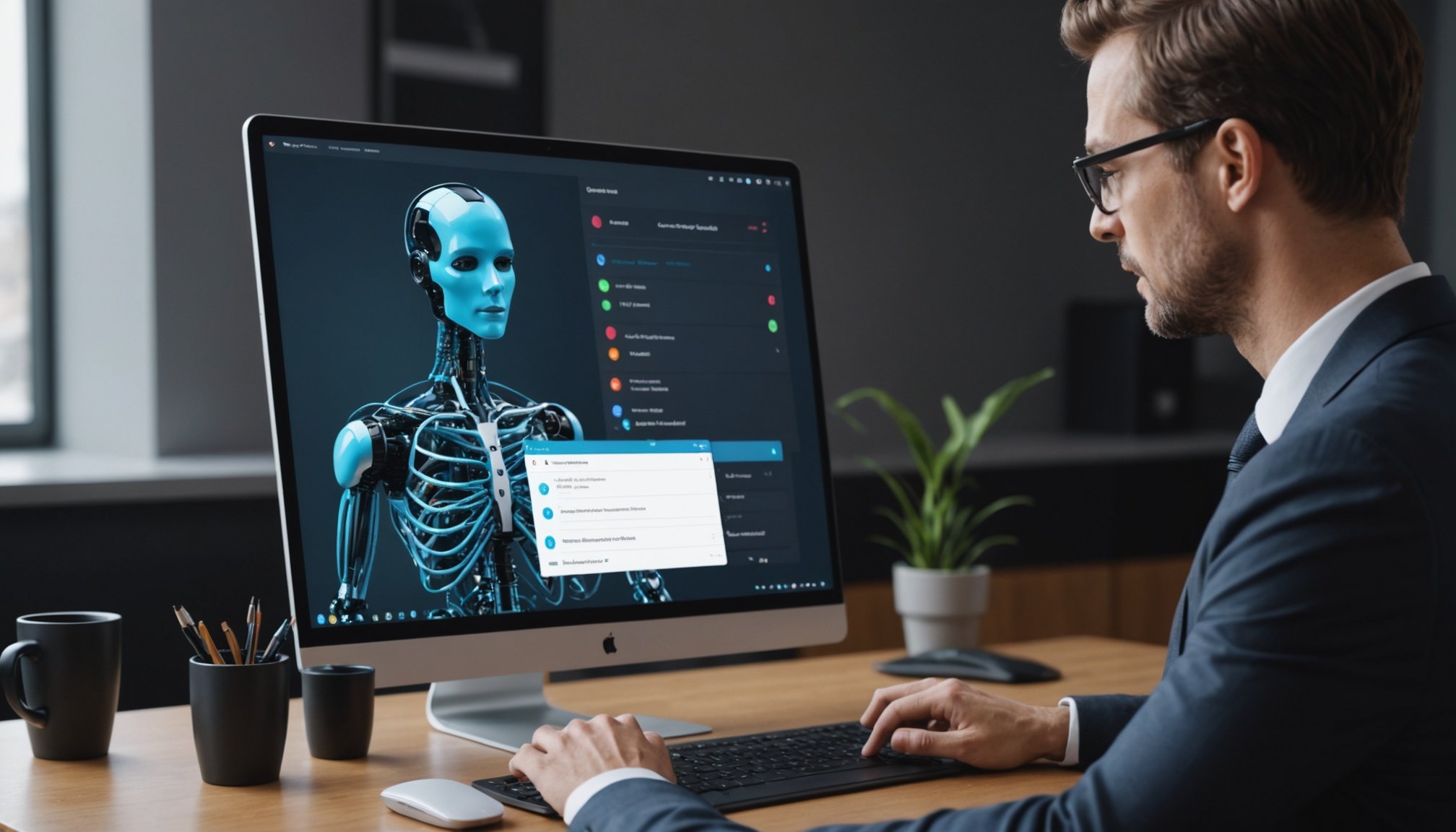AI personal assistants are revolutionising how we manage tasks, schedules, and communication daily. By integrating smart scheduling, natural language processing, and collaboration features, these tools boost productivity and organisation for both work and home environments. Discover which assistants lead in 2025 and how choosing the right one can transform your workflow with smarter task management and seamless calendar integration.
Understanding AI Personal Assistants and Their Role in Productivity
https://www.marblism.com/ai-employees/eva is an advanced AI executive assistant designed to boost productivity across business operations. It efficiently manages emails, calendars, and administrative tasks, saving users at least two hours daily. Eva’s ability to filter and respond to emails, draft messages, and prioritize schedules exemplifies AI-driven task management.
Also read : What role does cybersecurity play in the UK’s high-tech computing landscape?
In 2025, AI assistants have evolved into integral components of daily routines, seamlessly integrating into both professional and personal spheres. These tools, like Eva, exemplify digital assistant platforms that streamline workflows and reduce manual effort. Their functionality supports efficient task prioritization, intelligent reminder systems, and voice-activated helpers.
Sectors such as small businesses, remote teams, and corporate environments benefit from such business automation assistants. They enable smarter scheduling, project coordination, and communication—transforming traditional workflows into more automated and precise processes.
Also to see : What Are the Future Trends in UK’s Tech and Computing Industry?
Key Features and Capabilities of Leading AI Personal Assistants
Advanced Scheduling and Task Prioritization Capabilities
AI assistants features such as AI-driven scheduling tools and AI task prioritization enable seamless management of complex routines. These virtual assistant technology solutions integrate with digital assistant platforms, supporting real-time prioritization adjustments. With advanced automation, an AI personal assistant dynamically reorganizes tasks when appointments shift or deadlines move. AI-powered note-taking assistants and intelligent reminder systems keep users proactive. Virtual secretary software assigns priorities based on workload, context, and historical behavior—making each calendar integration more intuitive.
Smart Communication and Collaboration Resources
Smart communication assistants incorporate natural language processing assistants for context-aware responses. AI-powered email management organizes and drafts communications, while AI chatbots for assistance process reminders and team messages. These AI productivity boosters enable team-wide collaboration and scheduling via virtual assistant technology. AI assistants for small businesses and enterprise teams automate routine communication, creating a digital assistant platform that supports flexible, multi-device operations. Machine learning personal helpers also facilitate voice-activated helpers for accessible, hands-free interaction.
Privacy, Security, and Integration Considerations
Privacy and security in AI assistants remain core priorities. Business automation assistants like Eva utilize top-tier encryption and privacy standards, ensuring data is protected across cloud-based intelligent assistants. AI assistant integration with apps allows custom workflow automation and compatibility with smart home and business systems. AI-based virtual collaboration is now supported through robust API integrations, providing users with secure, scalable, and customizable personal AI solutions for every environment.
Comparative Analysis of Top AI Personal Assistants in 2025
AI Assistants for Work Environments
Motion leads virtual assistant technology in professional settings. Its AI-driven scheduling tools dynamically manage project timelines and prioritize tasks, making it a prime choice for those needing advanced automated task management. Users benefit from intelligent reminder systems and AI productivity boosters like routine habit integration and auto-rescheduling of unfinished items. However, Motion’s learning curve for customizable fields and pending bulk task actions highlights the need for beginner-friendly AI assistant apps. Team collaboration thrives thanks to Motion’s business automation assistants—assigning tasks based on individual availability reduces conflicts and streamlines collective workflow.
Reclaim stands out among virtual secretary software for managers seeking smart communication assistants and recurring habit tracking. Its integration with AI tools for calendar management and organizational platforms is strong, but without substantial project management support and automatic rescheduling, some advanced AI task prioritization needs go unmet. Security-dependent integrations might restrict Reclaim in certain enterprises prioritizing privacy and security in AI assistants.
Clockwise excels with AI-driven meeting coordination, maximizing uninterrupted focus through machine learning personal helpers. Despite its advantages, limitations in project integration and synchronization speed can impact those depending on real-time AI assistance or advanced digital assistant platforms.
Practical Applications and Recommendations for Maximizing AI Assistant Benefits
Integrating AI workflow optimization tools like Motion and Alexa significantly simplifies both business routines and home management. Motion, for example, leverages AI-driven scheduling tools and automated task management to intelligently prioritize meetings, streamline tasks, and dynamically reschedule unfinished work. Alexa transforms home routines through robust voice-activated helpers, smart device integration, and natural language processing assistants, supporting daily organization and entertainment.
Best practices begin with clear setup: connect calendars for intelligent reminder systems, select appropriate AI productivity boosters, and customize preferences for your unique needs. Prioritize privacy and security in all digital assistant platforms by reviewing access permissions and leveraging AI personal assistant user privacy settings. Consider business automation assistants with encrypted data handling, especially in environments needing strict compliance.
Looking ahead, AI-based workflow optimization is moving toward adaptive learning, cross-platform synchronization, and advanced context-aware AI assistants. Future AI tools for calendar management will anticipate routine shifts, and machine learning personal helpers will better forecast needs. Evolving virtual assistant technology ensures AI assistant integration with apps improves, boosting work-life balance for everyone from small business owners to remote professionals.
Powering Daily Productivity: How Virtual Assistant Technology Transforms Workflows
Using the Stanford Question Answering Dataset approach, top recommendations for automating business tasks and personal routine management are virtual assistant technology, AI-driven scheduling tools, and smart AI-powered email management. These solutions leverage machine learning and natural language processing assistants to deliver seamless support across work and home settings.
Essential features of today’s AI productivity boosters include advanced AI-based workflow optimization, automated task management, and intelligent reminder systems. With digital assistant platforms like Motion or voice-activated helpers such as Alexa and Google Assistant, users easily delegate complex scheduling, quick communication, and follow-up reminders—significantly reducing manual effort.
For professionals, virtual secretary software assists in consolidating AI tool for calendar management and project collaboration while AI assistant integration with apps facilitates smooth organization. AI-powered email management sorts, drafts, and prioritizes messages, reducing inbox clutter. Customizable personal AI ensures that workload organization adapts as individual or team demands evolve.
Business automation assistants and personal organization AI now support everything from AI-driven meeting coordination to smart communication assistants and AI helpdesk assistants. By mastering AI task prioritization and integrating AI assistants for small businesses or remote work, teams benefit from adaptive, real-time AI assistance, improved focus, and efficient task completion.




